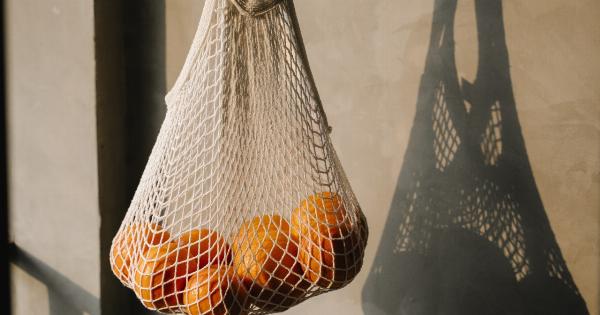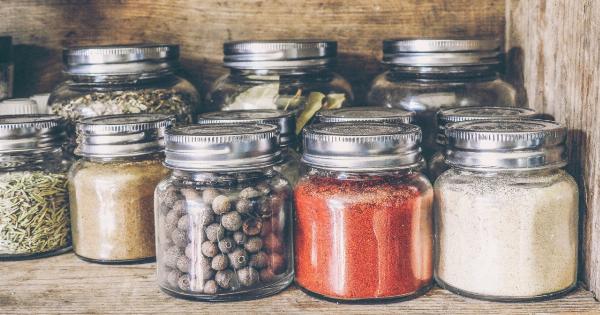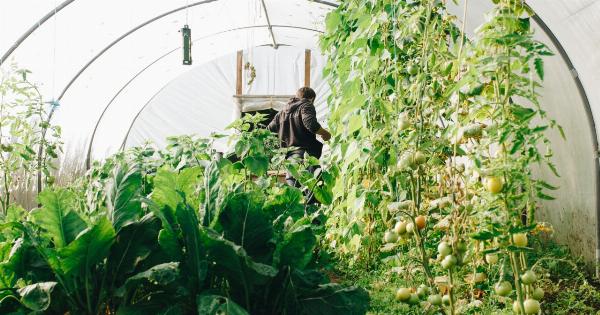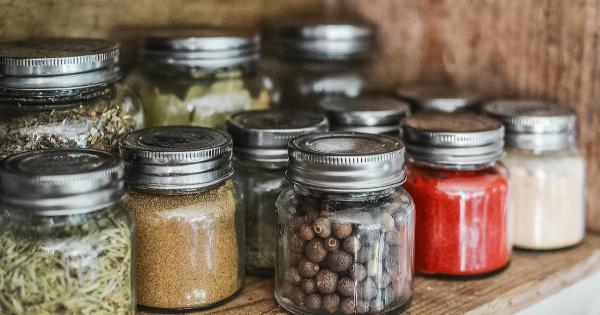Bloating is a common and uncomfortable condition that affects many people. It occurs when your abdomen gets swollen, feels tight, and uncomfortable.
There are different causes of bloating, including gas, overeating, swallowing air, and some foods and drinks. While fruits and vegetables are an essential part of a healthy diet, some of them may be responsible for causing bloating. Here are some fruits and vegetables that can cause bloating:.
1. Apples
Apples are a healthy and delicious fruit, but they can cause bloating in some people. Apples are high in fiber, which can be difficult to digest for some individuals.
This fiber can cause gas to build up in the intestines, leading to bloating, discomfort, and even diarrhea. If you notice that apples cause bloating, consider reducing your intake or choosing other low-fiber fruits like bananas or strawberries.
2. Broccoli
Broccoli is packed with vitamins and minerals, making it a great addition to your diet. However, this cruciferous vegetable contains raffinose, a sugar that our bodies cannot digest.
Raffinose travels through your digestive system until it reaches the large intestine, where it is fermented by bacteria, producing gas. This gas can cause bloating, stomach cramps, and flatulence. If you are prone to bloating, try limiting your intake of broccoli and other cruciferous vegetables like cauliflower or Brussel sprouts.
3. Beans
Beans are a nutritious and versatile source of protein, but they can also cause bloating and gas. Beans are high in fiber and contain oligosaccharides, a type of carbohydrate that is difficult to digest.
When oligosaccharides reach the large intestine, they are broken down by bacteria, producing gas. While reducing your intake of beans can help with bloating, they also offer many health benefits. Try soaking beans before cooking or choosing low-gas varieties such as black beans or lentils.
4. Cabbage
Cabbage is a cruciferous vegetable that contains raffinose, like broccoli. This means that it is difficult to digest, leading to gas and bloating.
Additionally, cabbage is a natural diuretic, which means it makes you urinate more often, leading to dehydration. If you notice that cabbage causes bloating, consider cooking it thoroughly or choosing other low-fiber vegetables like cucumbers or lettuce.
5. Mangoes
Mangoes are a delicious tropical fruit, but they may cause bloating in some people. Mangoes contain a type of fiber called resistant starch, which can lead to bloating.
Additionally, mangoes are high in fructose, a type of sugar that can be difficult to digest for some individuals. If you notice that mangoes cause bloating, try reducing your intake or choosing other low-fructose fruits like kiwi or berries.
6. Onions
Onions are a staple ingredient in many dishes, but they can cause bloating and gas. Onions contain fructans, a type of carbohydrate that is difficult to digest for some individuals.
When fructans reach the large intestine, they are fermented by bacteria, leading to gas and bloating. If you notice that onions cause bloating, consider cooking them thoroughly or using other herbs and spices to add flavor to your dishes.
7. Pears
Pears are a juicy and refreshing fruit, but they can cause bloating in some individuals. Pears are high in fructose, like mangoes, making them difficult to digest for some people.
Additionally, pears are high in sorbitol, a type of sugar alcohol that can cause bloating and diarrhea in some individuals. If you notice that pears cause bloating, try reducing your intake or choosing other low-fructose fruits.
8. Prunes
Prunes are often eaten as a natural remedy for constipation, but they may cause bloating in some people. Prunes are high in sorbitol, like pears, which can cause gas and bloating.
Additionally, prunes are high in fructose, making them difficult to digest for some individuals. If you notice that prunes cause bloating, try reducing your intake or choosing other fruits like oranges or berries.
9. Sweet Potatoes
Sweet potatoes are a tasty and nutritious root vegetable, but they can cause bloating in some people. Sweet potatoes are high in fiber and resistant starch, which may be difficult to digest for some individuals.
Additionally, sweet potatoes are high in oligosaccharides, like beans, which can cause gas and bloating. If you notice that sweet potatoes cause bloating, try reducing your intake or choosing other low-fiber vegetables like zucchini or carrots.
10. Watermelon
Watermelon is a refreshing and hydrating fruit, but it may cause bloating in some individuals. Watermelon is high in fructose and sorbitol, making it difficult to digest for some people.
Additionally, watermelon contains a lot of water, which can lead to bloating and discomfort. If you notice that watermelon causes bloating, try reducing your intake or choosing other low-fructose fruits like grapefruit or pineapple.
In conclusion, while fruits and vegetables are an important part of a healthy diet, some of them may cause bloating.
If you notice that certain fruits or vegetables cause bloating, try reducing your intake or choosing other low-fiber and low-fructose options. Additionally, cooking vegetables thoroughly can help break down their fibers, making them easier to digest.
With some trial and error and a little bit of experimentation, you can still enjoy a variety of delicious and nutritious fruits and vegetables while avoiding bloating.





























